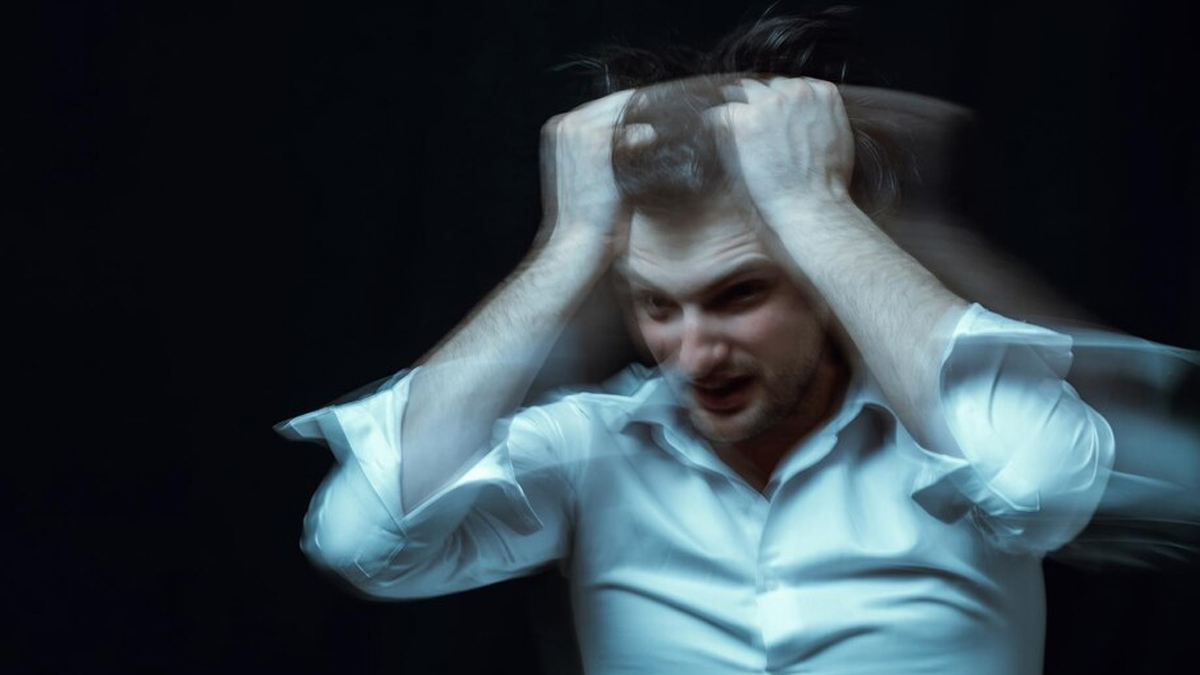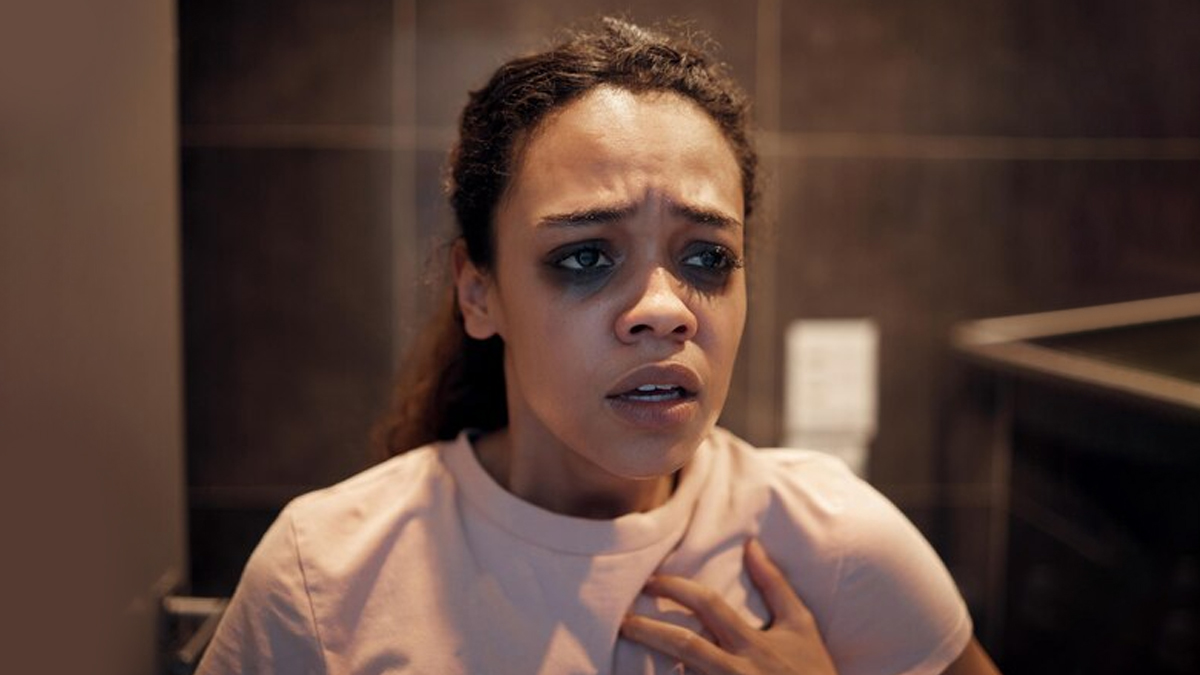
Nine-time Grammy award winner Billie Eilish is a fan favourite across people of all age groups. The 23-year old singer and songwriter has been a relevant name in pop culture, mostly known for her bold admissions and wholesome gestures– apart from her back-to-back chart toppers. In recent times, the singer has been seen getting objects hurled at her during her concerts; while this does seem harmless, several brutal and traumatising incidents by obsessive fans have taken place in the backdrop, reportedly sending the singer into a spiral of paranoia.
Table of Content:-
CHECK YOUR
MENTAL HEALTH

We casually refer to people as ‘paranoid’, completely overlooking the fact that it is not a daily-use jargon but a serious condition that people suffer from, such that it impacts their daily lives. With Eilish suffering from paranoia symptoms, the masses may try to understand the condition and its seriousness in a better manner. To better understand the condition, the OnlyMyHealth team spoke to Aarthy Iyengar, Psychologist, Nirmal Chaya Complex, Manas Foundation, Department of Women and Child Development, Governmet of NCT.
Billie Eilish’s Reported Battle With Paranoia
Billie Eilish is reportedly struggling with paranoia fueled by fame and traumatic experiences with stalkers, according to sources. Disturbing incidents, including threats from men who camped outside her home and showed threatening gestures, have left her deeply traumatised.
The source further disclosed that Billie was reportedly deeply affected by these experiences, stating, "That shook her." According to reports, Billie has experienced a number of fears since these incidents, such as a fear of the dark and concerns about "someone hiding under her bed and closet."
What Is Paranoia?

Thinking in a way that entails unfounded suspicion and mistrust of other people is known as paranoia. Iyengar explains what paranoia is by using an anecdotal example. She says, “Let's say you're traveling in a public transport and somebody is looking at you and is talking with somebody they are traveling with.
Do you feel that this person is talking about you, making a mockery of you? All of us have these experiences, all of us do have these doubts and it stems from a place of associating what people perceive of us with our self-esteem.”
She further says that there's nothing wrong about it but whenever this fear translates into hyper-vigilance and anxiety about others always conspiring to defeat you or that of others always conspiring to harm you, it might take a turn into paranoia. That's what we call paranoia, an intense fear of being attacked or targeted.
What Are Some Signs Of Paranoia?
Based on the anecdotal account that Iyengar shared, here’s a list of some tell-tale signs of paranoia.
- Worrying excessively about a loved one's faithfulness or dependability.
- Being extremely wary of the motives of others.
- Believing that there are unfavourable remarks being made about you "behind your back."
- Having trouble trusting other people
- Feeling as though you are being taken advantage of.
- Persistently harbouring resentment.
- Believing that others, even complete strangers, are trying to harm you.
- Inability to handle criticism of any kind.
- Giving other people's comments unfavourable connotations.
- Being defensive or reactive all the time.
- Being combative, belligerent, and abrasive.
- Holding onto irrational conspiracy beliefs.
- Believing that there is always a threat in the world.
What Causes Paranoia?

According to Cleveland Clinic, although the precise causes of paranoia are unknown, environmental factors may include social isolation, sleeplessness, trauma exposure, and medication changes. It is frequently linked to the consequences of substance abuse and mental illnesses. Genetic factors may be involved, especially if it manifests as a mental illness.
What Are The Types Of Paranoia?
- Persecutory paranoia is considered to be the most common subtype. It's the feeling of being observed, harassed, excluded, or purposefully undercut. Symptoms include anger and actions to counteract the perceived threats, like calling the police for help or moving in the hopes of avoiding the persecutor.
- Grandiosity paranoia is also believed to be common. It makes references to self-satisfying beliefs (like the notion that you are inherently superior to other people). Grandiose illusions have the potential to make patients hostile or combative.
- Litigious paranoia refers to an unreasonable desire to involve the law in routine disputes. Arguments, claims of persecution, demands that rights are being infringed, and attempts at retaliation are its hallmarks.
In the 'What Was I Made For?' singer's case, exposure to periodical traumatic incidents have led to symptoms of paranoia, which is particularly persecutory in nature.
RELATED: Billie Eilish Reveals She's At Constant War With Her Body Due To Hypermobility; Know All About It
How Is Paranoia Treated?
Iyengar explains that when this fear and hyper-vigilance starts hampering your psychosocial and psycho-occupational functioning, is when it becomes a problem and one has to seek psychological support.
Psychotherapy, also known as talk therapy, may be helpful if you have mild to moderate paranoia without an underlying mental health condition. You can recognise and alter unhealthy feelings, ideas, and behaviours with the help of a mental health specialist (such as a psychologist).
Treatment for underlying mental health conditions that cause paranoia varies according to the severity of the condition. Usually, a mix of medication and psychotherapy is used.
What Should Fans Take Away From This?
Although a world-renowned singer, Eilish is just as human as we are; one that has feelings and can feel fear. As stalking incidents and constant scrutiny have taken a toll on Eilish's mental health, the onus lies on the fans and even onthose who aren't associated with the celebrity to respect the singer's privacy, instead of engaging in obsessive behaviours that may further the singer's symptoms.
In sum, the singer’s battles with paranoia and anxiety reveal the darker side of fame that often goes unnoticed. As Eilish works to cope with her anxiety, her plight serves as a reminder of the personal struggles that come alongside being the eye of the tornado.
Also watch this video
How we keep this article up to date:
We work with experts and keep a close eye on the latest in health and wellness. Whenever there is a new research or helpful information, we update our articles with accurate and useful advice.
Current Version